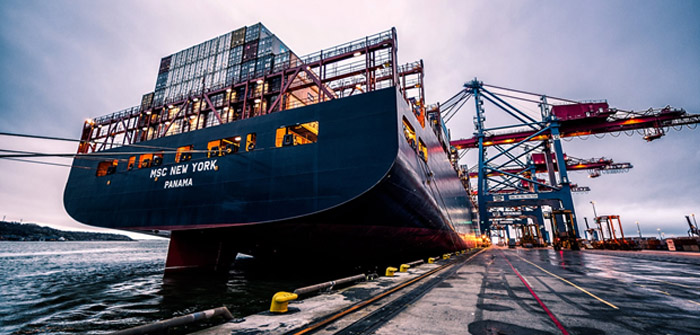Logistics is the beating heart of the international trade infrastructure. Transport and logistics are instrumental in the development and growth of the global economy. The economy of a country is mostly reliant on its logistics and transport infrastructure to support economic activity.
Indeed, the emergence of a global logistical infrastructure has supported the robust growth of international trade. The efficiency and quality of logistics matters greater as it promotes global trade integration. An incompetent infrastructure gives birth to operational inefficiencies and delays, which can cause trade to collapse entirely.
The integration of global trade requires a robust and wide-ranging logistics infrastructure that ensures efficiency and productivity. Today, the logistics landscape operates on high-tech advancements and innovative solutions. This article will walk you through the role of logistics in supporting international trade and economic activities.
Here’s everything you need to know:
CREATING A FACILITATIVE ENVIRONMENT
The logistics environment is very vast and wide-ranging and not limited to transportation; it involves vendor management, packaging, risk mitigation, customs brokerage, documentation, containerization, and more. An efficient logistics infrastructure and solution provides help businesses effectively manage their entire supply chains.
In simpler words, logistics create a facilitative environment to support international trade. It connects businesses and manufacturers with multiple sectors and businesses. More importantly, logistics infrastructure establishes a connection between a domestic economy and a global economy. Exporting goods to another country is no easy feat, and businesses rely on logistics solutions to overcome various challenges.
Each country has its own unique customs regulations, product classification rules, and guidelines. For instance, a business based in Peurto Rico must comply with the US customs guidelines to successfully export its products. These foreign businesses rely on the logistics infrastructure to seek out a competent customs broker in the US. It can help the foreign business ensure compliance with all customs regulations and undertake lengthy processes.
It helps a business save time, delays, and unnecessary costs. Similarly, businesses seek out logistics to minimize storage, packaging, containerization, and vendor management costs. Logistics creates a facilitative environment that allows businesses of all shapes and sizes to engage in international trade.
FACILITATING CONNECTIONS
In recent years, technological innovations have ushered in dramatic advancements that have dramatically boosted logistics’ efficiency. International trade is not possible without an environment that facilitates connections, collaborations, and joint-ventures. Businesses cannot identify suppliers, vendors, and manufacturers to expand their activities overseas and send their products abroad. Businesses also rely on shipping companies, storage, and containerization to engage in global trade.
International trade relies on the interconnected web of service providers and logistical solutions that facilitate economic activity—robust and innovative logistics aids in creating a liberalized global economic landscape that enables higher trade volumes. Logistics also promote economies of scale in production and distribution activities, allowing all businesses to participate in international trade actively.
Logistics infrastructure creates connections within the domestic and global economy. It also connects the local economy with international trade infrastructure. Logistics allows various production sectors of a country to engage with a worldwide audience of businesses, vendors, and importers. For instance, it connects the agriculture, food, tourism, manufacturing, and IT industries across the world to facilitate trade and commerce.
This exchange of goods relies on robust logistics systems and efficient transportation solutions to ensure shipment security and minimize risks. These connections between vendors, shippers, customs brokerages, and other key players are vital to support international trade.
PRODUCING COST-EFFECTIVE SOLUTIONS
International trade relies on cost-effective solutions to support shipments’ movement from one part of the world to another. Not all businesses have the capabilities and capital to established global transportation infrastructure. While global brands can establish manufacturing plants and distribution networks overseas, small and medium-scale enterprises seek cost-effective solutions.
It serves the best interest of businesses to deliver their goods to consumers in the most cost-effective manner. All businesses focus on minimizing the costs of shipping and transportation to offer their consumers engaging prices. Logistics infrastructure provides cost-effective solutions that allow the domestic producer to engage in international trade.
This infrastructure allows local producers to participate in and benefit from burgeoning global value chains. Local businesses can benefit from innovative technologies in telecommunications, air freight management, containerization, and informatics. Efficient, reliable, and innovative logistics systems allow companies to establish and maintain international linkages with cost-effective solutions successfully.
OPPORTUNITIES FOR COLLABORATIONS
International trade and economic activity thrive on connectivity and collaboration between local and foreign businesses. Logistics determine a producer’s ability to participate in global trade and building linkages to penetrate a foreign market. A country with a weak logistics system fails to create a facilitative environment that offers opportunities for collaborations.
When local and foreign businesses fail to collaborate, a country fails to generate exports and imports. A robust logistics environment is necessary to enrich the consumer market and help companies to expand their markets.
The emergence of organizations, such as the Organization for Economic Co-operation and Development (OECD), has immensely enriched the international trade environment. Countries, regions, and continents are increasingly fostering collaborations and organizations to improve the logistics infrastructure with dynamic and facilitative developments.
Enhanced connectivity and collaboration in international trade allows countries across the world to achieve their development goals. A robust logistics infrastructure not only facilitates international trade and economic growth. But more importantly, it creates employment opportunities, distributes income, and even improves the distribution of food and healthcare.
Besides commercial goods, logistics is also vital to transport life-saving medications and healthcare equipment and address food shortages. It creates a positive environment to support an efficient and risk-free exchange of goods. The facilitation of international trade enriches a country with numerous economic and social advantages.
CONCLUSION
Logistics plays a vital supportive role in facilitating international trade. An efficient and quality logistics infrastructure is instrumental in supporting global trade in the world’s far-off regions. It allows countries and manufacturers from every region to collaborate and benefit from economic activity. Businesses of all shapes, scales, and sizes rely on logistics solutions to reach new consumer audiences and countries.
Naturally, an efficient and robust logistics infrastructure has numerous benefits for the local and global economy. It gives birth to numerous jobs and offers cost-effective solutions to help businesses achieve growth and profit maximization. Logistics solutions aid in eliminating the transactional cost and inefficiencies to support international trade and commerce.
The advent of tech-driven logistics solutions has heightened the pace of integration within the international trading community. The world is more reliant on efficient and advanced logistics structures and services than ever to support economic integration.




